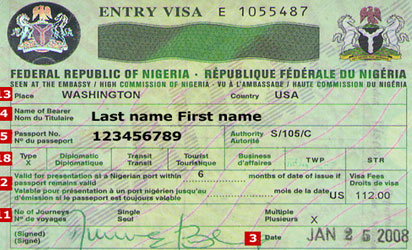
In December, President Muhammadu Buhari had announced that Nigeria would begin to issue visa-on-arrival to every person that carries an African passport.
The president told attendees of the Aswan Forum for Sustainable Peace and Development in Africa that the move will “bring down barriers that have hindered the free movement of people within the continent”.
True to his words, the president unveiled a new visa policy for the country on Tuesday.
TheCable brings you seven of the most important parts of the visa policy.
No cash transactions
Under the new visa policy, immigration officers have been prohibited from receiving cash from visa applicants. The federal government says this will reduce the chances of corruption.
Biometrics needed
Femi Adesina, the special adviser to the president on media and publicity, describes the 2020 visa policy as a global visa system.
Biometrics registration has been made a requirement for every applicant.
Adesina said the “chances of criminals beating the system are negligible”.
Biometrics is to be conducted at the port of entry.
Visa on arrival to be issued only at airports
Visas to be issued on arrival will only be available at the airports, not at sea or land borders.
VOA only for short visits
In line with the clarification earlier made by Muhammad Babandede, comptroller general of the Nigerian Immigration Service, that not every African will get the visa on arrival, the policy states that only short-term visitors will get visa on arrival.
Single-entry, short-visit visas have been made available for journalists, entertainers, clerics and sportsmen wishing to visit Nigeria will now also get single-entry, short-visit visas.
Three visa categories, 79 visa types
The visa policy introduces three categories of visas: short visit, temporary, and permanent residence.
It also increases the visa types from the previous six to 79.
The policy provides for five categories for investor visa namely: N3A, N3B, N3C, N3D, N3E
Visa for diaspora Nigerians by birth
Under the new visa policy, Nigerians living in the diaspora who are citizens by birth are now eligible for a multi-year, multiple-entry visa.
The visa is available to citizens who have had to renounce their citizenship to become citizens of other countries.
END

Be the first to comment